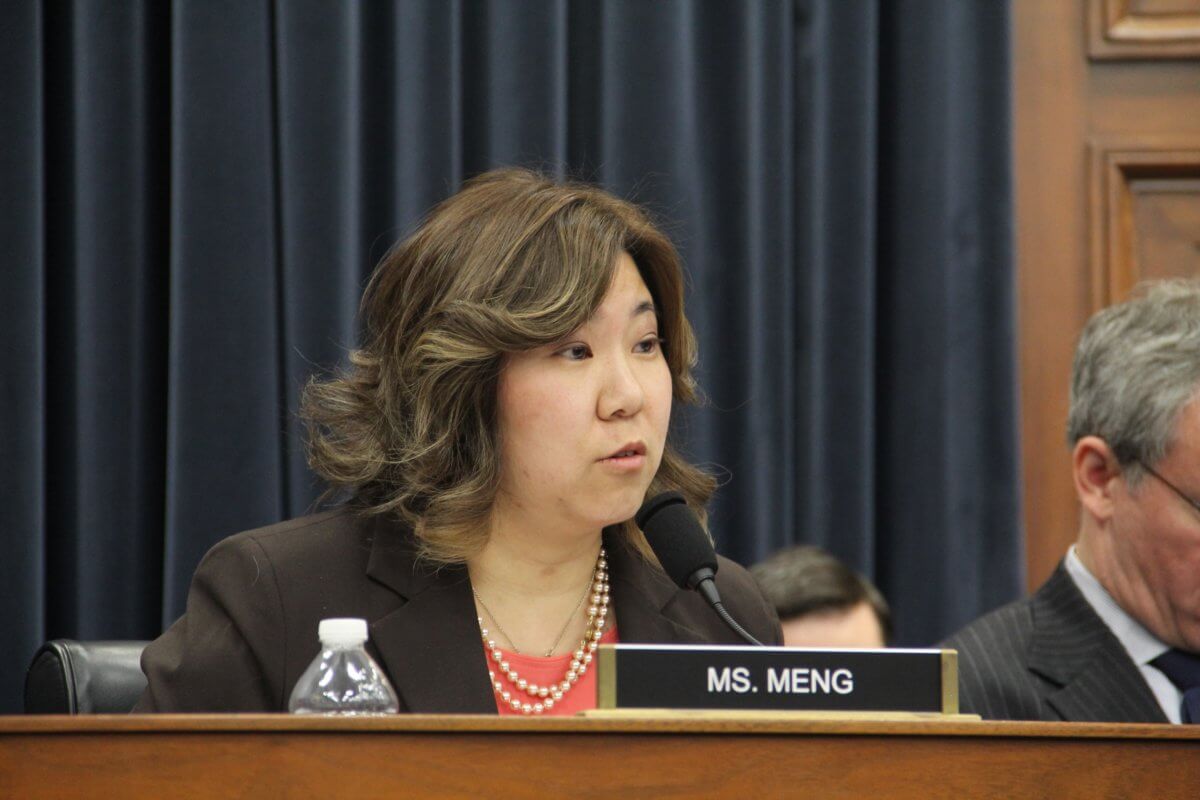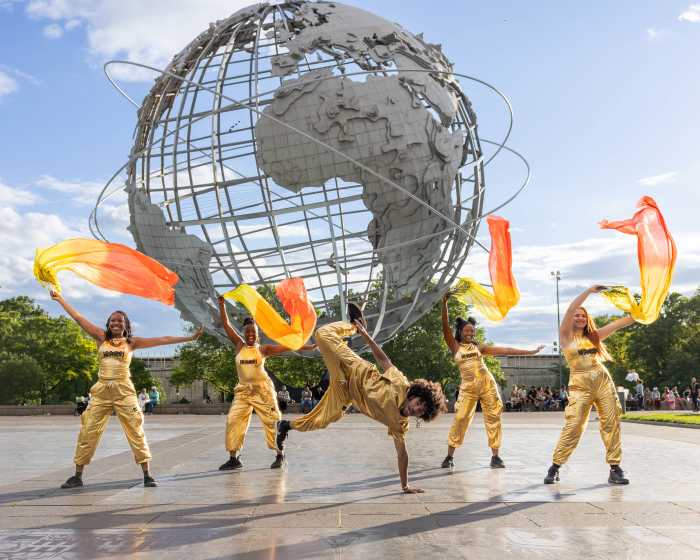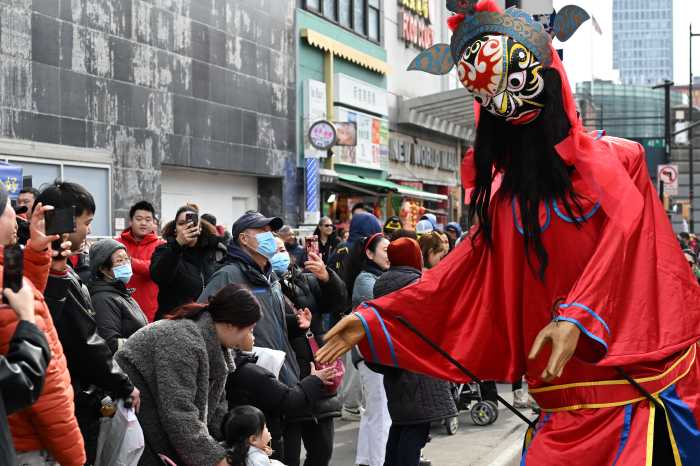A bill sponsored by Congresswoman Grace Meng to create the first national museum dedicated to preserving the history, culture and accomplishments of Asian American and Pacific Islanders unanimously passed the House of Representatives on Tuesday, April 26.
The passage of the bipartisan bill comes as the nation prepares to celebrate Asian American and Pacific Islander Heritage Month in May. The monthlong celebration pays tribute to the generations of Asian Americans and Pacific Islanders (AAPI) who have enriched America’s history.
The bill — a “Commission to Study the Potential Creation of a National Museum of Asian Pacific American History and Culture Act” — will now head to the Senate for a vote.
“For the last seven years, I have worked to push this legislation through Congress, and I am thrilled that it has finally passed out of the House of Representatives,” said Meng, the first vice chair of the Congressional Asian Pacific American Caucus. “Asian Americans and Pacific Islanders have been pivotal in contributing to the growth and prosperity of our nation since its founding. We have helped make the United States the greatest country in the world, but unfortunately many remain unaware of the crucial role we’ve played throughout our history. It’s time for that to change and creating a national museum would ensure there is a physical space to commemorate and share our story with future generations.”
Over her congressional career, Meng has seen the National Museum of African American History and Culture opened and has been proud to stand by her colleagues as they passed legislation to create a National Museum of the American Latino and the American Women’s History Museum. But never before has a bill like this, that seeks to advance the history and culture of Asian Americans and Pacific Islanders through a national museum, been approved by the House, according to Meng.
“I’m honored to champion this effort. Our achievements, history and experiences are [as] American as everybody else’s, and we must recognize that the narrative of the Asian Pacific American community is woven into our greater American story,” Meng said. “I am excited that we are one step closer to this bill becoming law, and one step closer to a national museum filled with our Asian Pacific American history being established.”
House Majority Leader Steny Hoyer said he was proud to bring Meng’s bill to the House floor and join in supporting the legislation to study the creation of a national museum to preserve and teach the history of Asian American and Pacific Islander communities in the country.
“America has become a home to a great diversity of people and communities, all of which have brought a richness of traditions that enhance our nation and make us stronger. Their stories are deeply ingrained in the American story, and our history cannot be told in full without including their voices, perspectives and contributions,” Hoyer said.
Meng’s bill would create a commission of eight individuals with various expertise in museum planning or Asian Pacific American history and culture to examine the feasibility of establishing, maintaining, funding and operating such a facility in the nation’s capital.
The museum would possibly be part of the Smithsonian Institution in Washington, D.C., which is the world’s largest museum and research complex.
Meng’s measure would require the commission it establishes to:
- Report recommendations for a plan of action on the establishment and maintenance of a National Museum of Asian Pacific American History and Culture;
- Develop a fundraising plan to support the establishment, operation and maintenance of the museum through public contributions;
- Obtain an independent review of this fundraising plan, including an analysis of the resources necessary to fund the construction of the museum and its operations and maintenance without reliance on federal funds;
- Report on the availability and cost of acquiring collections for the museum, identify potential locations for the facility in Washington, D.C., and determine its regional impact on other related museums;
- Submit to Congress a legislative plan of action on whether to and how to establish and construct the museum.
The legislation would also direct the commission’s recommendations to address whether the museum should be part of the Smithsonian Institution. The commission would have 18 months to complete the full study and its members would be appointed by the House Speaker, Senate Majority Leader, House Minority Leader and Senate Minority Leader.
Meng has championed the bill during the last several sessions of Congress and testified about her legislation before two committees. First in February 2020, before the House Administration Committee, and the second time in December 2021 in front of the House Natural Resources Subcommittee on National Parks, Forests and Public Lands. Late last year, Meng also called for the chair of the Natural Resources Committee to make her bill the first measure that the panel takes up in 2022.
Meng’s legislation passed with 120 cosponsors including Democrats and Republicans. A copy of the bill and additional details about the measure can be viewed here.
Congresswoman Judy Chu, chair of the Congressional Asian Pacific American Caucus, called it “a necessary step in the process” toward establishing the first museum dedicated to the AAPI community.
“A museum that is dedicated to telling the story of our communities as part of American history not only helps educate our country about our accomplishments and struggles but showing how our history is American history is a powerful tool to combat anti-Asian hate and xenophobia,” Chu said.
Meng’s bill is endorsed by many organizations, including the Asian American Federation (AAF) and Asian Americans Advancing Justice (AAJC).
Jo-Ann Yoo, executive director of AAF, said they’re happy to wholeheartedly endorse establishing a commission to study the creation and viability of such an endeavor.
“In the face of the continued harm inflicted on Asian Americans by hatred and ignorance, knowledge and understanding is the best balm,” Yoo said. “We believe along with Rep. Grace Meng, that a National Museum of AAPI History and Culture will help us learn from and celebrate our history, present a perspective that will help Americans bridge division and lead to greater empathy among diverse races.”
John Yang, president and executive director of AAJC, said the bill is an important first step in recognizing the history and lived experiences of AAPI communities.
“Our communities have long faced exclusion — from history curricula in the classroom to the recognition that our communities are integral to the fabric of American society,” Yang said. “Creating a national resource and institution dedicated to public education of Asian American and Pacific Islander histories is critical to building a more inclusive future.”

































